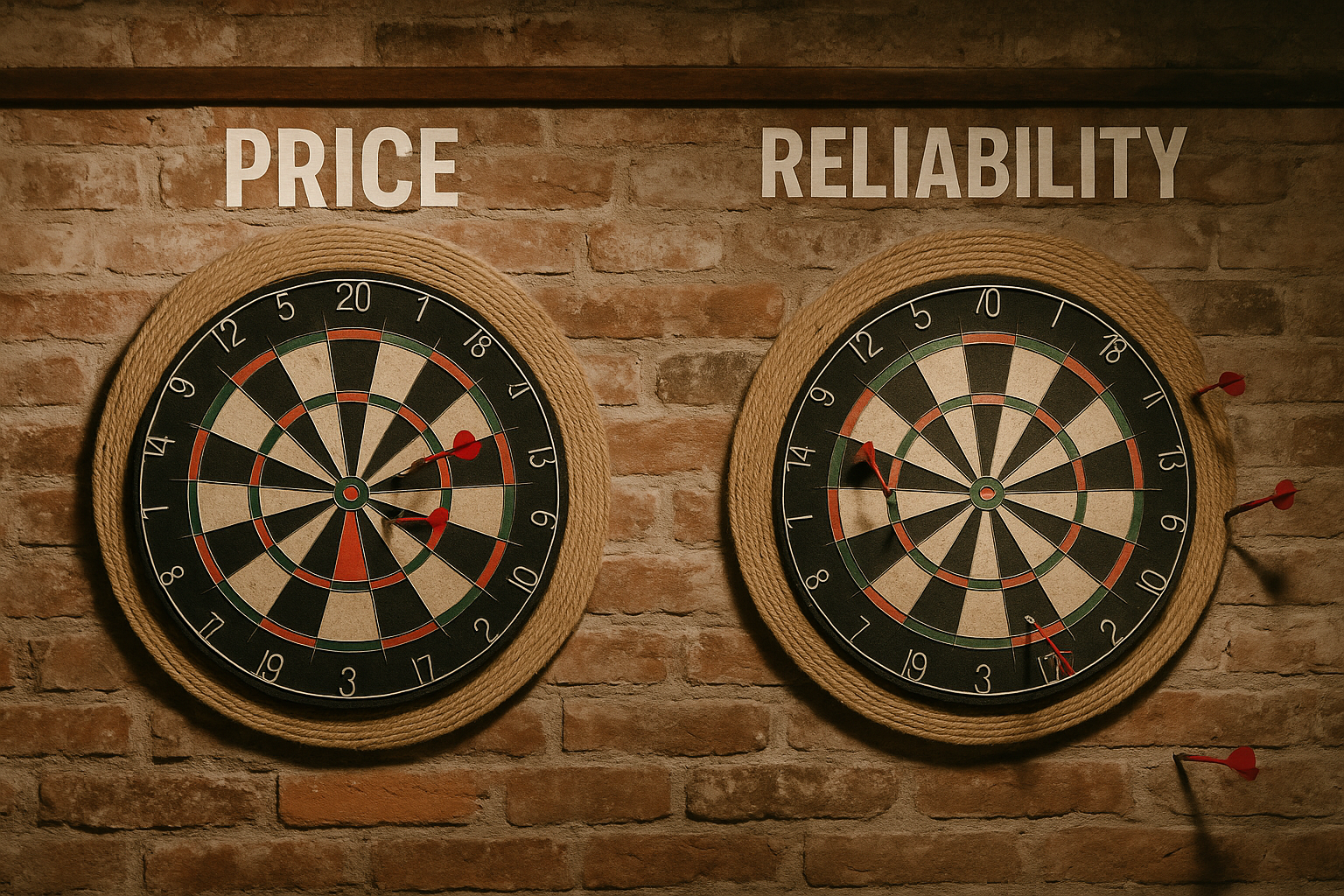If you spend much time in distribution sales, you’ve probably heard it—or said it yourself: “We lost the order because our price was too high.” But that explanation, while convenient, often oversimplifies what’s really going on.
In this post, I want to unpack what salespeople get wrong about B2B buying habits—and how those misunderstandings are costing them deals they could be winning.
Salespeople Misunderstand Buying Behavior in Two Big Ways
Many distribution sales reps operate with two flawed assumptions:
- They think B2B customers make decisions based only on price.
- They believe B2B buying is completely different from their own personal buying habits—when in fact, there are some surprising similarities.
Let’s take a closer look at both.
Misconception #1: “My customers are price-sensitive on everything.”
Salespeople often picture their customers shopping like they do on Amazon: they see a price, compare options, and pick the cheapest. That mental model leads reps to think that if they didn’t win the order, it must have been because someone else had a lower price.
But that’s not how B2B buying actually works.
- B2B buyers have preferred suppliers. If a contractor’s go-to distributor is a little high on a quote, the buyer doesn’t walk away—they pick up the phone. A plumbing contractor might say, “Hey Jay, I’m seeing some really competitive numbers out there on XYZ product. Has the market changed?” That conversation often ends with Jay getting the order—at a price the buyer can justify.
- Price is negotiable. Unlike retail purchases, pricing in distribution is fluid. Strong relationships create space for flexibility.
- The distributor relationship matters. Most contractors have suppliers they prefer to work with. And if the price is close enough—a price they can justify—they’ll often stay loyal, even if it’s not the lowest number on the page. Trust, service, availability, and ease of doing business carry real weight.
That’s especially true for everyday, routine business—like picking up a handful of items for a job. Contractors won’t drive across town to save 5% on a $100 order. But on larger, planned projects—say a hospital or school—price plays a bigger role. A 5% gap could disqualify a bid.
Still, even on big jobs, price alone doesn’t win. If a customer doesn’t trust you to deliver—on time, complete, and hassle-free—your low quote will probably just get shopped and awarded to someone else who can be trusted. Execution and credibility matter.
Misconception #2: “B2B buying is totally different from consumer buying.”
Yes, there are differences. But there’s also a key similarity: both B2B and consumer buyers tend to anchor their decisions around a few key items, not the whole basket.
Let me give you a personal example:
- I shop at Winco because they sell my favorite sparkling water at $2.68 for an eight-pack. That’s what drives my decision to go there. Once I’m there, I don’t scrutinize the price of every single item—I just add what I need to my cart.
- My son? He shops based on diapers and formula. That’s what determines which store he chooses. The rest of the shopping trip is built around those key items.
It’s the same in distribution.
For a repair plumber, it might be a 50-gallon gas water heater or a tankless unit. That’s the high-spend, high-frequency item that drives the purchasing decision. Once that’s decided, they’re not going to price-shop every flex connector, valve, or heater pan—they just add them to the order.
So What Should Salespeople Do?
- Stop assuming every lost sale is due to price.
When a customer says, “Your price was too high,” it likely means you’re not their preferred supplier—at least not on that item. They probably used your quote to negotiate with their go-to distributor, who got the order. - Identify the items that actually drive decisions.
Every customer has “anchor” products—the ones they buy in volume, frequently, and with price sensitivity. Understand what those are for your customers. Win those, and the rest tends to follow. - Build trusted relationships.
Whether it’s a $100 fill-in order or a six-figure commercial project, being the justifiable choice matters. And that comes down to trust, consistency, and service—not just the number on the page.
Final Thought
Don’t oversimplify the buying process. B2B customers aren’t mindless price-shoppers. Like all of us, they have a mix of habits, preferences, and priorities that shape their decisions.
Yes, price plays a bigger role on large jobs, and a few percentage points can absolutely change the outcome. But even then, trust and delivery capability can tip the scales. If a contractor doesn’t believe you can execute, your low number won’t win—it’ll get used as leverage somewhere else.
The goal isn’t to always be the cheapest. The goal is to be the supplier they want to work with—because your price makes sense, your service is reliable, and your relationship is solid.
